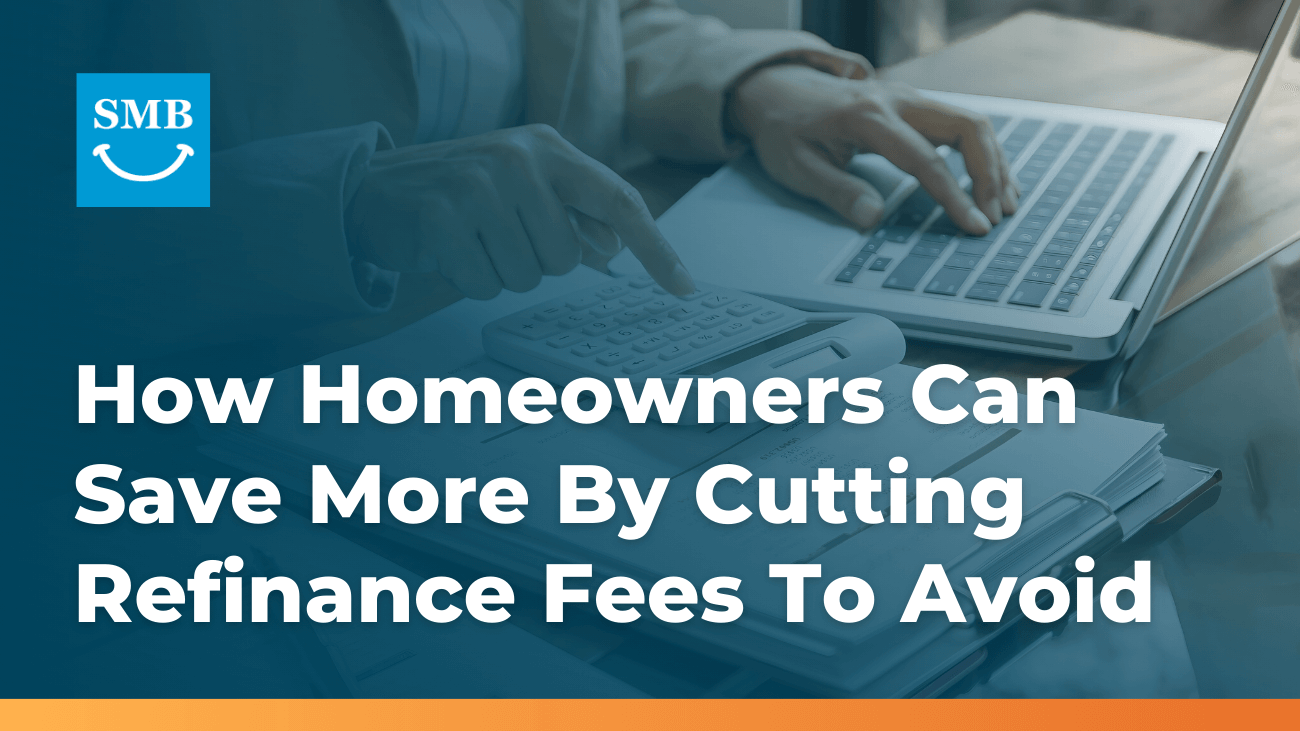10 Ways to Save For Your Mortgage Down Payment

In 2018 alone, more than 6.27 million homes sold in the United States. And many of those homes went to first-time home buyers looking to get out of the rental market.
Though every home buyer is different, they all have one thing in common: they saved for a mortgage down payment.
As a Seattle resident, finding ways to save with our high cost of living can feel like an uphill battle. But it doesn’t have to.
Here are a few simple ways to start saving for a mortgage down payment in Seattle without putting a strain on your monthly budget.
1. Pay Off Existing Debt
Credit card debt, student loans, and car loans all need regular monthly payments. And when you still owe hundreds or thousands to creditors, those payments can be huge.
This makes it tough to start saving money for anything, let alone a down payment.
The best way to start saving for your new home is to get rid of that debt as quickly as possible. Start by focusing on loans and debt with the highest interest rate.
For most people, this means throwing as much money as you can at credit card debt. Once that amount is paid off, start chipping away at your other debt. The more you pay down, the less you’ll pay each month.
Once your debt is paid off, you can then start saving the same amount each month. After a few months, you’ll have a sizable chunk to use towards your down payment.
As an added bonus, the less debt you have, the easier it is to get approved for a mortgage. You might even get pre-qualified for a loan with a lower down payment if you have a high enough credit score and little to no debt.
2. Set Up a Dedicated Savings Account
It’s easy to blow through money when it’s easily accessible. Instead of battling through the temptation, set up a dedicated savings account.
Look for a savings account that earns interest on every dollar you deposit. This will help build your down payment savings without you having to do anything else. The interest earned won’t be huge, but every little bit helps.
Keep in mind, you might have to enroll in an account that’s separate from your regular bank. Most standard savings accounts earn under one percent interest. But if you look around, you should be able to find an account that earns more than two percent interest on your funds.
You can even set up automatic transfers each week or month out of your checking account. The less you have to think about building your savings, the easier it will be to build up enough funds for a down payment.
3. Find Ways to Cut Your Expenses
The less you spend each month, the more you can start saving. Take a month and keep track of every dollar you spend.
At the end of the month, take a look at what you’ve been spending money on. Are there things you don’t need eating away at your paycheck? Did you treat yourself to a fancy coffee drink every morning for the last two weeks?
If so, great! Those are expenses you can cut back on!
Now, take a look at the fixed expenses. Is there a way to cut down on your electric bill? Are you paying for cable when you don’t really use it?
Start thinking about ways to trim your monthly costs. It doesn’t mean sacrificing everything you enjoy doing. It just means being smart about how you spend your money.
4. Embrace the Side-Hustle Culture
Taking a second job doesn’t have to be a huge time commitment. And when you’re working 40 hours a week, the thought of spending more time working can be daunting at best. But the more money you bring in, the more you have to save for a mortgage down payment.
Instead of looking into a boring second job with set hours that can clash with your main gig, embrace the side hustle.
The key to any successful side-hustle is finding something you enjoy doing. If you love animals and being outdoors, consider starting a dog walking business. If you enjoy driving through Seattle, become a driver for a ride-share company.
Any money you earn from your side-hustle can go straight into that interest-bearing savings account!
5. Explore Down Payment Assistance Programs
Believe it or not, first-time home buyers can get down payment assistance from the government. And in Seattle, it’s no different.
These programs provide a low-interest loan to qualified home buyers in Washington state. And they’re available at the state and federal level.
The programs offer between $10,000 and $15,000 loans specifically for down payments. This means you’ll still need to save money to cover the rest. But the assistance programs can help you get into a home faster.
6. Look for a Cheaper Place to Rent
Seattle has some crazy rent prices. That’s why you’re looking to buy a house, right?
But think about how much you spend each month on rent. You know your paycheck is large enough to cover that monthly cost. So, why not start looking for a cheaper place?
If you can save at least $100 a month in rent, you can add that $100 to a savings account.
Remember, you’re saving to buy a home. The cheaper apartment may be smaller, but you’ll have more money at your disposal. The more you can save, the faster you’ll get into a home you’ll own.
The rental doesn’t have to be ideal. It’s temporary!
7. Find a Credit Card That Offers Cash Back Rewards
In this day and age, you need a credit card to help cover those unexpected expenses. But not all cards are created equal.
Some cards offer cash back rewards on every dollar you spend. If you’re already using the card to make purchases, cash back means it’s easier to keep your debt levels down. Best of all, it increases the amount you can save each month.
Cash back rewards are used to pay down your credit card statement. If you’re not spending more on your credit card than you can pay off each month, you’ll have more money to add to your down payment savings.
8. Start Couponing
Cutting costs doesn’t have to mean eliminating things you enjoy. But you do need to be smart about how you spend your money.
And what helps more than couponing? Start checking the newspaper for weekly coupons you can use to reduce costs on the items you buy most.
If you’re shopping online, run a search for discount codes and apply the ones that will save you the most, Honey is what I use personally and it is extremely straight forward. Every dollar you don’t spend is one you can add to your mortgage down payment.
9. Eat at Home
Eating out gets expensive. In fact, dining out costs the average household more than $3,000 a year. But eating at home and only going to restaurants occasionally can save you hundreds each month.
Start thinking about how much you eat out each week. Do you bring lunch to work every day? Are you stumped for dinner ideas and order in every other night?
The more you cook at home, the more money you’ll save. Create a meal plan and stick to it. Come up with lunch and dinner ideas (leftovers make great lunches) and take the time to cook for yourself.
It may be hard at first, but the more you do it, the easier it will get.
10. Think About Asking for a Raise
You work hard at your job. But when was the last time you got a raise?
If you’re like most people, it’s been a long time since you saw an increase in salary. So, why not ask for one?
Speak with your manager about your wages. Approach them respectfully and explain why you feel it’s time to renegotiate your salary. Be respectful and phrase it as a request rather than a demand or expectation.
Most managers, especially ones that are satisfied with the work you’ve done, will at least consider the raise if it’s in the budget.
If they can’t give you a raise immediately, you’ll have the peace of mind knowing that it will be on their minds during budget reviews.
Start Saving for Your Mortgage Down Payment in Seattle
Saving for a mortgage down payment in Seattle can feel impossible. But it doesn’t have to be. Every extra dollar you have is one that can be used to build your savings.
All you need to do is get creative and find ways to cut back costs and boost savings. Instead of looking at the money you have left, at the end of the month. Look at your total paycheck as your down payment savings and then only buy the necessities. When you view it this way, every dollar you spend will feel like it is taking a dollar from your house budget. It may take time and it might not be easy, but the reward is a house of your own.


The Ultimate Guide to the Best Suburbs of Seattle

Should You Use a Mortgage Broker? Everything You Need to Know First

How to Find the Right Neighborhoods in Seattle for Your Budget and Lifestyle

Warrantable vs. Non-Warrantable Condos: What Every Buyer Needs to Know Before Financing

How Much Does It Cost to Refinance a Mortgage in Seattle? A Homeowner’s Guide
.png)
How Often Can You Refinance Your Home?
.png)
The Complete Guide to For Sale By Owner (FSBO) in Seattle

10 Questions Every Seattle First-Time Home Buyer Asks

What is a Non-Warrantable Condo?

Ultimate Seattle Mortgage Loan Documents Checklist

Your Complete Guide to Seattle Property Tax

Why You Should Work with a Mortgage Broker

Where to Find the Best Local Mortgage Broker

Where Are The Best Places To Live In Seattle?

What’s the Best Way to Save Money for a House in Seattle?

When is the Best Time to Refinance a Home?

What is the Jumbo Loan Limit in Seattle 2020?

What You Need to Buy a House in Seattle

What Is a Jumbo Loan and will you need one when moving to Seattle?

What is the Jumbo Loan Limit in Seattle?

What Is A Non-Warrantable Condo?

What is the Best Down Payment Amount on a House in Seattle?

What is PMI Mortgage Insurance? And Why It Is Not As Bad As You Think

What Is A Cash-Out Refinance?

What do Home Loan Underwriters Look For?

What Down Payment Do I Need for a House?

What Are The Costs of Buying a Home?

What Are The Best Neighborhoods In Seattle For Families?

FAQ: What Are the VA Home Loan Requirements?

WEST SEATTLE JUNCTION ; Seattle Neighborhood Tour

What are RSUs and How to Spend Them

Understanding Mortgage Down Payments

Top 5 Seattle Suburbs to Buy In 2021

Understanding Down Payments in Seattle

The Ultimate Mortgage Document Checklist

Top 10 Questions To Ask A Mortgage Broker (Before You Commit)

The Worst First-Time Homebuyer Mistakes

The Top 5 Seattle Suburbs for 2020

The Best Seattle Neighborhoods in 2020

How to Find the Best Mortgage Refinance Companies in Seattle

The Best Seattle Neighborhoods for Families

The Best Neighborhoods in Seattle to Buy a Home

The 7 Best Seattle Suburbs for Families

Seattle Neighborhood Guide: The Top 10 Most Affordable Places To Live In Seattle

SOUTH LAKE UNION ; Seattle Neighborhood Tour

Seattle Summer Housing Market Guide 2020

Seattle Housing Market Update 2020

Seattle Housing Market Hacks

Save Money When Buying a House in Seattle

Save Money on Your Mortgage Refinance

Moving to Seattle with a Family? Here's the BEST Suburbs For You!

Refinancing To Reduce Your Bills and Increase Available Cash

Neighborhoods in Seattle to Buy a Home 2020

Real Estate Trends in Seattle

Mortgage Down Payments in Seattle

MAGNOLIA ; Seattle Neighborhood Tour

Mistakes to Avoid with Cash-Out Refinance

How to Refinance Your Home in 9 Steps

Jumbo Loan Limit vs Conforming Loan Limit in Seattle for 2021

KIRKLAND ; Seattle Neighborhood Tour

Jumbo Loan Limit in Seattle for 2021

ISSAQUAH ; Seattle Neighborhood Tour

Is My Credit Score Good Enough to Buy a House?

How to Buy a House; Home Buying 101

How to Lower Your Monthly Mortgage Payment

How to Get the Best Rate for Your Home Loan

How to Buy a House for Less

How Much Home Can I Buy in Seattle?

How Much Do You Really Need for a Down Payment in Seattle?

How Much Home Can I Afford?

Home Price Forecast for Seattle 2020

How Hot is the Seattle Real Estate Market?

How Hot is the Seattle Real Estate Market in 2022?

Home Inspection Questions You Need to Ask

Do You Need a Realtor to Buy a House in Seattle?

FHA vs. Conventional Loan: Which Mortgage Is Right for You?

Find the Best Mortgage Lender for Your Home Loan

Federal Housing Administration Loans 2021

Down Payment Requirements in Seattle

FACTORIA and SOMERSET ; Bellevue Neighborhood Tour

Everything you Need to Know About Seattle Jumbo Mortgages

Everything You Need to Know About VA Loans

Advice To A First Time Home Buyer: Down Payment Assistance Programs Exist for Millennials

CROSSROADS ; Bellevue Neighborhood Tour

Down Payment 101: How Much Money Do I Need to Buy a House?

COVID-19 Mortgage Help for Homeowners

Comparing ARM vs. Fixed Rate Mortgage

Can I Afford To Buy A Home In Seattle?

Choosing the Best Lenders for Home Loans

How to Use Restricted Stock Units to Buy a Home in Seattle

ARM v. Fixed Mortgage: Which is Right For You?

Ballard or Queen Anne? The Best Neighborhoods of Seattle to Buy a House

Avoiding the Worst Seattle Mortgage Lenders

Are You Buying a House in Seattle? Here’s the Ultimate Survival Guide

Fixed vs. Adjustable Rate Mortgage: How Today’s Buyers Can Make A Smarter Choice

ALKI BEACH ;; A Seattle Neighborhood Tour

A Complete Guide to Refinancing Your Home Loan

8 Ways to Lower Your Mortgage Payment


















